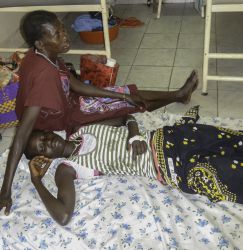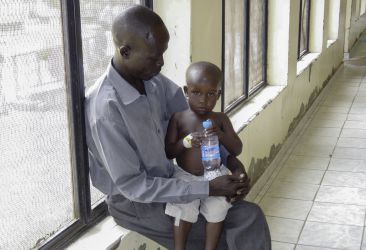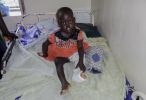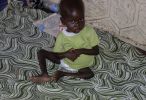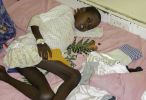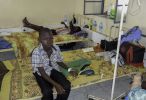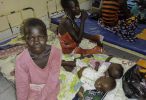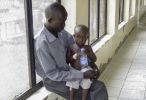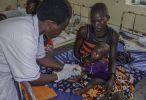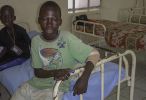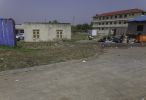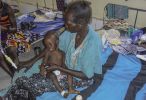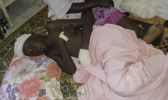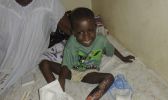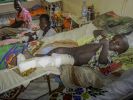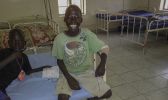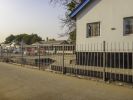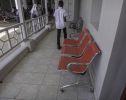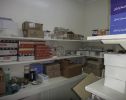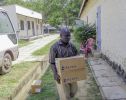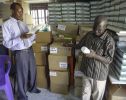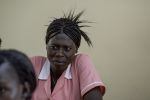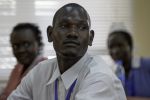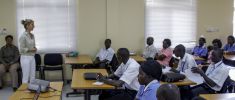Medical Mission International is partnering in South Sudan at the Juba Teaching Hospital to create accessible and high quality health care services.
The collaborative effort among non-governmental organizations, including Medical Mission International, is strengthening the delivery of medical care to the impoverished people in the region. The Juba Teaching Hospital is the only national referral hospital in South Sudan, a county with an estimated population of more than ten million.
According to MMI programme director, Doug Kendrick, the lack of functioning healthcare facilities in the country leave many South Sudanese with no access to medical staff or health care except the Juba Teaching Hospital.
Medical Mission International’s financial support is resulting in the improvement of patient wards and infrastructure at the hospital, as well as the rehabilitation and purchase of new medical equipment. Funding has also allowed for the consistent provision of basic medical supplies, disposables, and pharmaceuticals for use at the hospital.
The hospital receives some financial assistance from South Sudan’s central government, through the National Ministry of Health. However, according to programme liaison, Dr. Martina Fuchs, the availability of supplies can be irregular at the hospital, forcing patients to individually search for and procure medical consumables and pharmaceuticals needed for treatment. Prior to non-governmental organizations, like Medical Mission International, stepping in to fill the gaps, the extreme poverty and current economic situation in South Sudan left vulnerable patients at a loss, unable to afford desperately needed medications and care.
The on-going civil conflict in South Sudan has stressed the country’s already fragile infrastructure and has created a major public health crisis. The World Health Organization estimates that more than half of the country’s health facilities are not functioning. Poor sanitation, water shortages, lack of shelter, food insecurity, crowded living conditions in displacement areas, severe malnutrition and a low immunization rate among young children and pregnant women are escalating the humanitarian catastrophe.
South Sudan has one of the highest maternal and infant mortality rates in the world. Most women in South-Sudan give birth without the assistance of a skilled birth attendant, making South Sudan, one of the most dangerous places to become a mother.
Thanks to generous MMI donor support, the Juba Teaching Hospital now offers comprehensive pre-natal services to expecting mothers, in the hospital’s newly renovated and well-furnished examination rooms. According to Dr. Fuchs, the wait times have been reduced with the expansion of the area and women are receiving quality maternity services in a private and respectful setting.
“It has had a very positive effect,” said Dr. Fuchs, noting that the number of women who are receiving medical assistance and education before, during and after giving birth is increasing the survival rates of new mothers and their babies. The programme also includes the provision of much needed micronutrient supplements to many of the expecting mothers, who lack access to adequate food and proper nutrition.
“Providing reliable health care services in developing countries, like South Sudan, has inherent challenges, and civil war and conflict create additional layers of complication,” said Kendrick. For example, very few areas within the hospital have back-up generators and electrical power instability is common. Medical staff also frequently battle through the consequences of water interruption, which compromises cleaning, infection control, and impedes the flow of care in the labour and operating rooms.
Malaria, diarrheal diseases, intestinal worms, respiratory tract infections and malnutrition are among the most typical and commonly treated ailments. However, hospital reports indicate an increase in surgical trauma cases from gunshot wounds and injuries from outbreaks of violence, which often affect innocent families caught in the crossfire.
“More than a billion people in the world lack access to health care systems and millions of children under the age of five die every year from malnutrition and mostly preventable diseases,” said Kendrick. “Medical Mission International applauds all of the dedication, commitment and collaborative effort at The Juba Teaching Hospital. We are invested in being part of the solution in South Sudan,” he said. "It has been inspiring and we are grateful to every MMI donor who has supported this work.”
